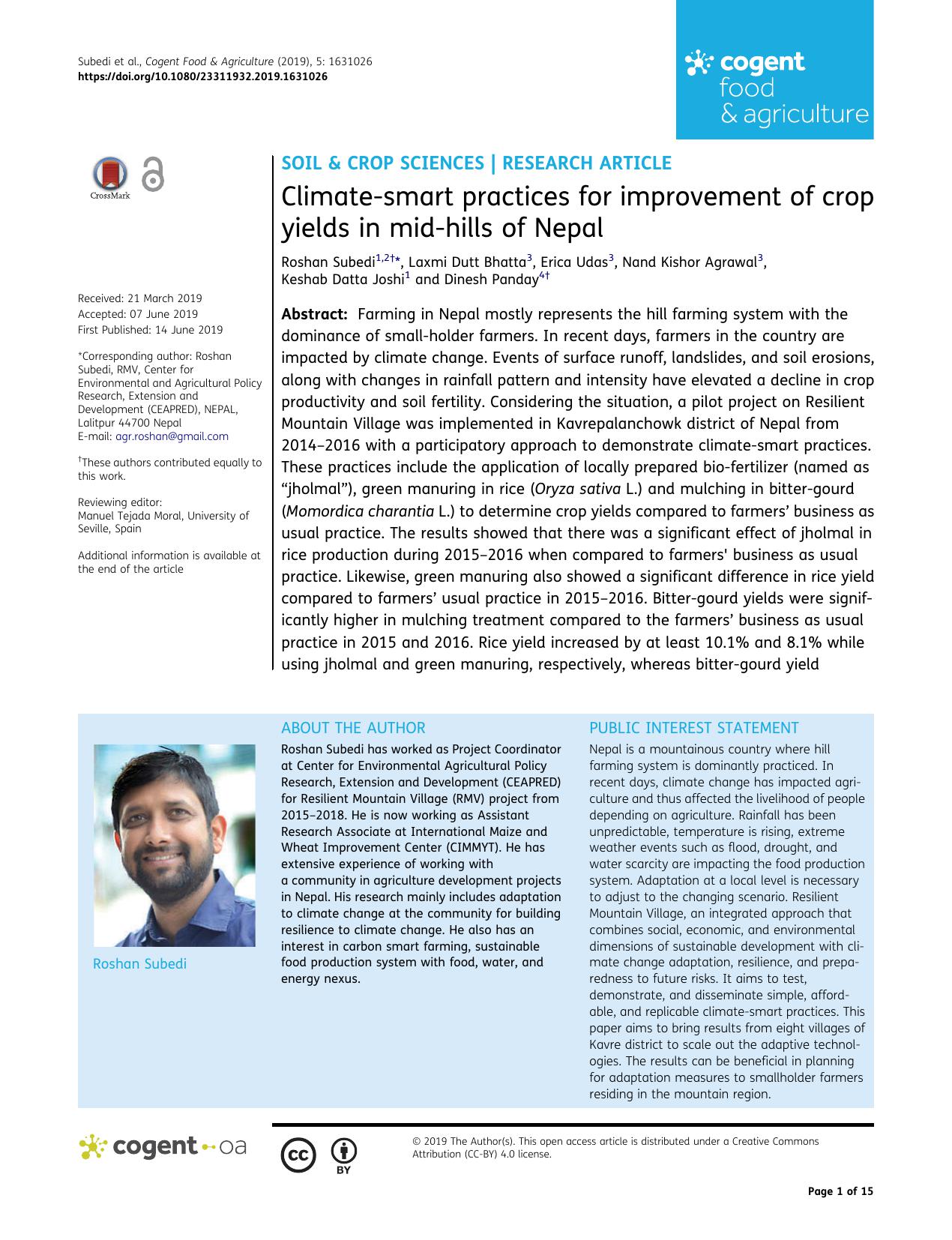
Farming in Nepal mostly represents the hill farming system with the dominance of small-holder farmers. In recent days, farmers in the country are impacted by climate change. Events of surface runoff, landslides, and soil erosions, along with changes in rainfall pattern and intensity have elevated a decline in crop productivity and soil fertility. Considering the situation, a pilot project on Resilient Mountain Village was implemented in Kavrepalanchowk district of Nepal from 2014–2016 with a participatory approach to demonstrate climate-smart practices. These practices include the application of locally prepared bio-fertilizer (named as “jholmal”), green manuring in rice (Oryza sativa L.) and mulching in bitter-gourd (Momordica charantia L.) to determine crop yields compared to farmers’ business as usual practice. The results showed that there was a significant effect of jholmal in rice production during 2015–2016 when compared to farmers' business as usual practice. Likewise, green manuring also showed a significant difference in rice yield compared to farmers’ usual practice in 2015–2016. Bitter-gourd yields were significantly higher in mulching treatment compared to the farmers’ business as usual practice in 2015 and 2016. Rice yield increased by at least 10.1% and 8.1% while using jholmal and green manuring, respectively, whereas bitter-gourd yield increased by 18.1% with mulching practices. Our findings show that farmers have adopted these practices and minimized the use of chemical fertilizers and pesticides, thus moving forward to producing safer food using a climate-friendly approach.